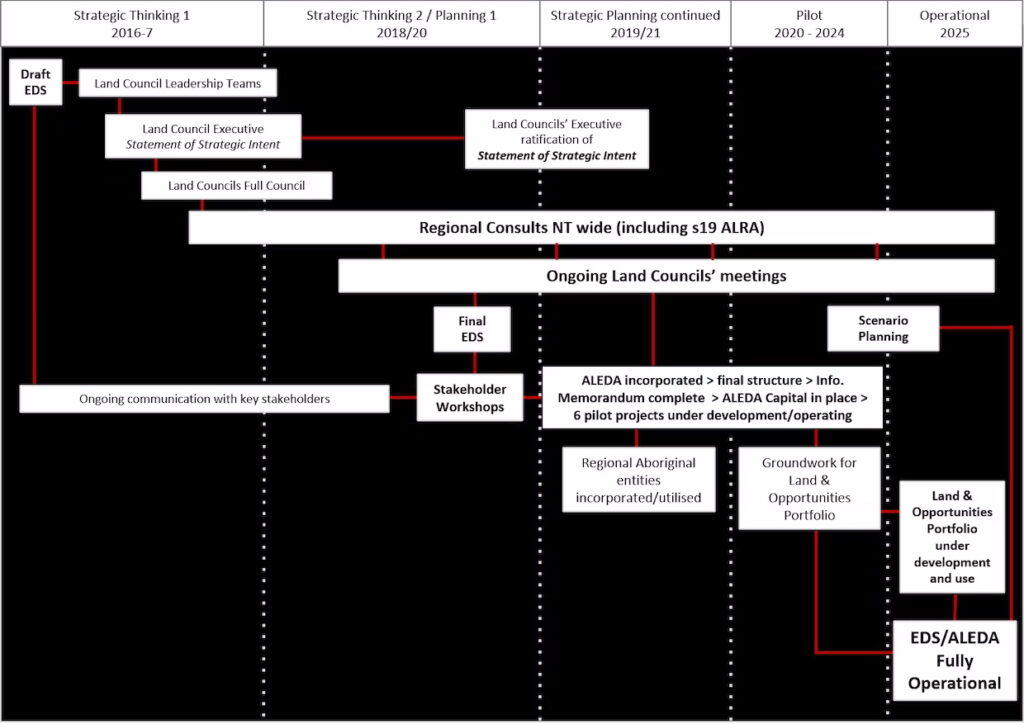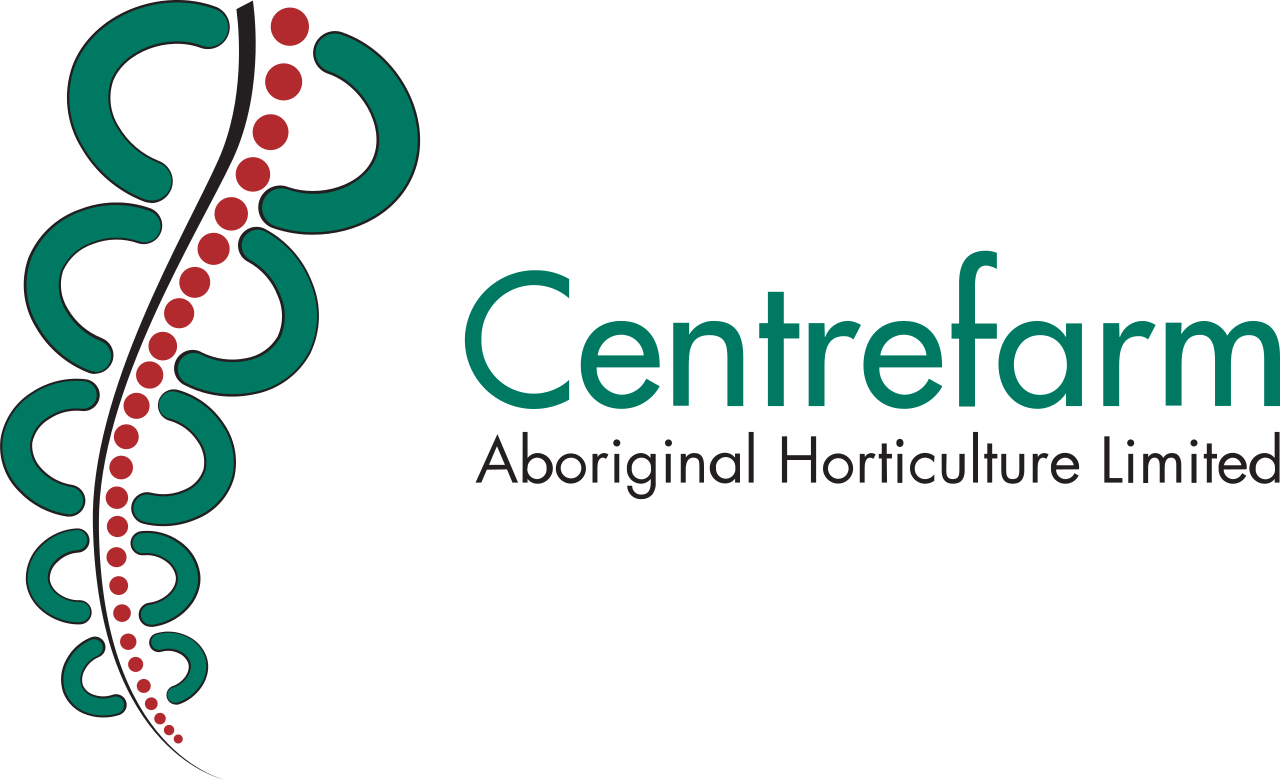The Aboriginal Land Economic Development Agency
Joint Land Council Economic Development Strategy
Originally established as a developer of viable commercial economies on Aboriginal lands for the benefit of Traditional Owners and communities, Centrefarm has more than a decade of practical on-the-ground experience of what is required, what works and what does not in this highly complex space.
This experience has enabled Centrefarm to create a comprehensive Economic Development Strategy (EDS) for the NT mainland Aboriginal estate in association with the Northern and Central Land Councils. A core feature of the EDS is the establishment of the Aboriginal Land Economic Development Agency (ALEDA), which was incorporated in 2018 to act as the agency to implement and drive ‘at-scale’ multi-industry developments throughout the NT. ALEDA is to act as the point of reference and be the lead agency for economic development on Aboriginal land.
The EDS is not a discrete single project, but a comprehensive, long-term plan that encompasses both the commercial and the cultural requirements necessary to ensure Aboriginal control at every stage. The EDS addresses the transition from welfare dependence to economic participation; and the adaption of systems, policies and approaches to ensure Aboriginal control of that process.

The conventional approach to economic development on Aboriginal land in the NT has proven to consistently fail. Aboriginal Australians are paramount stakeholders in the Northern Australian economy either owning or having some legal control over 90% of the NT land and sea. It is essential that Aboriginal peoples are at the forefront of any economic development and unless Aboriginal interests align with commercial developments, they may fail both socially and economically.
The strategy addresses the core economic components of land, capital and labour and responds to key challenges with innovative solutions designed to bring together Aboriginal aspirations and knowledge with commercial business and development.
It proposes solutions to the key challenges identified from this work, including an innovative investment mechanism (the Pilot Capital Fund) drawn from models such as the Clean Energy Finance Corporation and the Export Finance and Insurance Corporation, which will facilitate the entry of capital onto Indigenous lands and provide proof of concept for the Strategy.
The strategy is about facilitating Aboriginal landowners to become landlords, driving development to realise the full potential of their land holdings, and enabling the successful development of northern Australia.
The Land Council’s executive committees have endorsed the EDS draft which, together with the Statement of Strategic Intent and eight Guiding Principles, forms the operational and strategic base for ALEDA. Territory-wide on-site consultations with over 90% of CLC and NLC delegates and representatives of their communities on the Guiding Principles and operation of the EDS has delivered significant feedback and widespread support.
The draft EDS will be subject to a pilot phase from 2020 – 2024 at six locations across the NT. During the pilot phase, work will be undertaken towards producing a Prospectus of live opportunities in varied industry sectors for projects across the NT Aboriginal Estate that are feasibility tested and ready for investment.

NT-wide consultations
With the assistance of the NLC and CLC, Centrefarm conducted a thorough and extensive series of meetings and workshops throughout the NT in 2017 and 2018 to discuss the draft Economic Development Strategy, including the establishment of ALEDA and the Capital Fund. These meetings were held with 90% of NLC and CLC delegates who represent regions across the mainland NT, along with additional community members.
In accordance with the Statement of Strategic Intent, the regional consultations were to develop and discuss the Guiding Principles for the strategy and to set out the process and options for achieving the sustainable economic development of the NT Aboriginal estate in accordance with the wishes of Traditional Owners. The discussions took place in numerous communities, towns and remote locations across the NT. The extensive discussions ranged from individual consultations to large community forums and full land council delegate meetings. In general, there was widespread support for the strategy.
